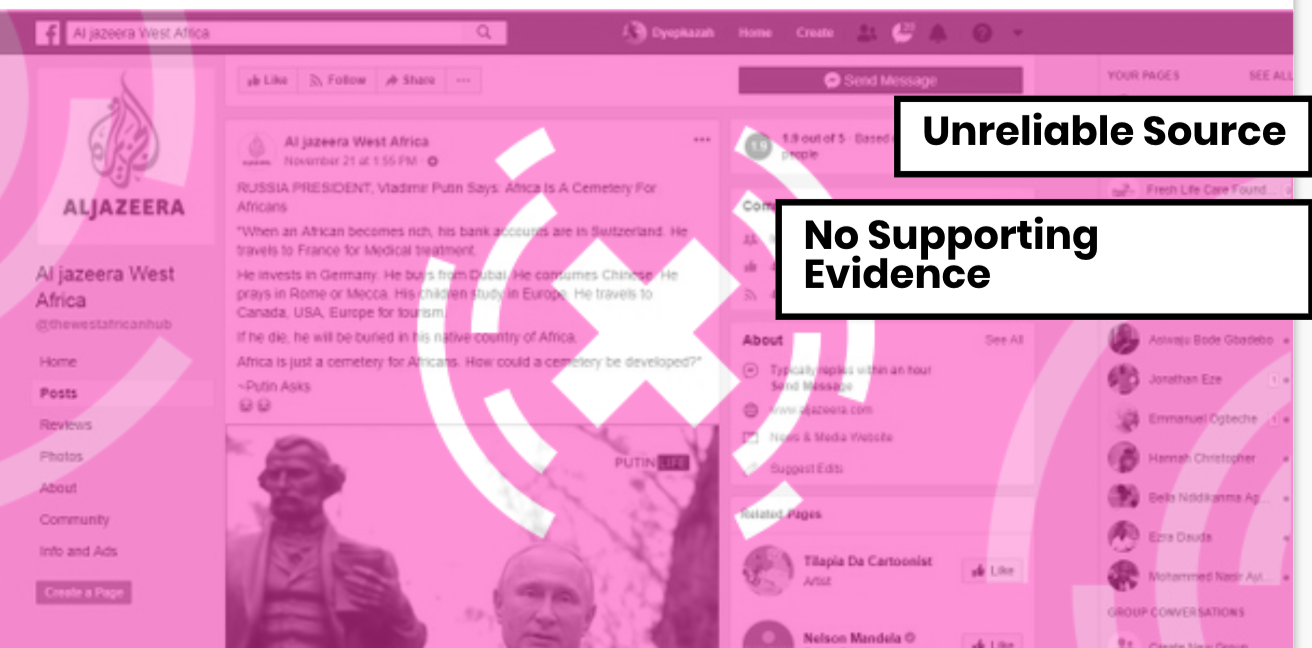
Facebook is used by 24 million Nigerians every month, but the platform has only four people, from third-party fact-checking organizations, working to combat misinformation there, BBC Africa Eye reported earlier this year in an investigation into how fake news in the country has led to violence and murder.
“Fake news is doing a lot of damage to our society,” Tyopev Terna Matthias, the public relations officer for Nigeria’s Plateau State police, told the BBC. “We pray Facebook shall listen to us and do something fast.”
Recent research suggests that African audiences see much more misinformation than American audiences do and that the public’s trust in the media is particularly low in Nigeria.It’s anyone’s guess whether Facebook will step up (don’t hold your breath), but luckily CrossCheck, which launched in Nigeria on Wednesday. It brings together journalists from 16 news outlets to collaborate on verifying information spread on social media, especially ahead of Nigeria’s 2019 general election. CrossCheck Nigeria is the combined effort of First Draft and the International Center for Investigative Reporting.
First Draft’s Claire Wardle told me that CrossCheck Nigeria is building on what First Draft and its partners learned about misinformation on WhatsApp from the Comprova project in Brazil, which ultimately collected nearly 70,000 audience tips via WhatsApp. The AFP’s Pedro Noel came from Brazil to Nigeria to help train the Nigerian journalists and said, “I wasn’t expecting as much misinformation in Nigeria as it compares to Brazil. But we actually had more work here.”One of the most amazing things about our projects is how knowledge moves from country to country. This week @infosquatter, an AFP journalist involved in @Comprova flew 24 hours from Brazil to teach our new Nigerian journalists advanced skills in discovering & debunking misinfo ❤️ pic.twitter.com/oaTuotAJe8
— Claire Wardle (@cward1e) November 28, 2018
CrossCheck Nigeria will ask the Nigerian public to send rumors related to the national elections to a CrossCheck WhatsApp account; the CrossCheck account will share correct information back, and encourage the people who sent it originally to share it with their groups.
“Our CrossCheck projects are designed to help the public understand not only what to trust, but also why,” Jenni Sargent, First Draft’s managing director, said in a statement. “Followers of the CrossCheck Nigeria project will be shown the fact-checking and verification steps behind each report, and will also see the logos of all partner newsrooms that have taken part in each investigation.”
CrossCheck Nigeria’s partner newsrooms so far include The Premium Times, Daily Trust, The Punch, The Guardian, News Agency of Nigeria, Sahara Reporters, Agence France-Presse (AFP), The Nation, Tribune, ThisDay, Africa Check, The Sun, Channels Television, The Cable, Freedom Radio, First Draft, Connected Development, The University of Lagos’ Department of Mass Communication, and The International Center for Investigative Reporting.